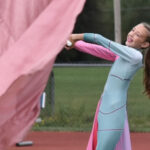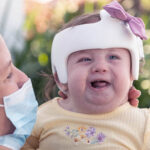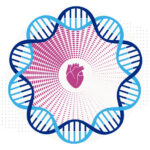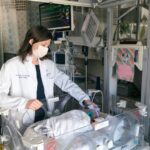Whether she’s embracing school, sports, or music, Lindsey shows how Williams syndrome can be managed
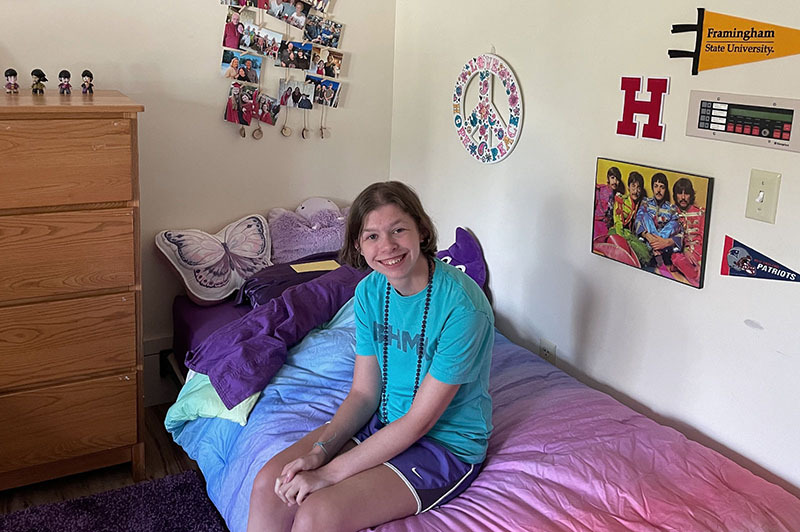
One of the first things Lindsey Franco will tell you is, “I like being me. I like being happy.”
The 19-year-old has a lot to be happy about. She attends a post-high school transition program that helps young adults expand their social and life skills. There, she does all the things she enjoys, including playing piano and basketball.
But Lindsey couldn’t imagine being where she is without receiving care at Boston Children’s for Williams syndrome, a rare genetic condition characterized by developmental delays, heart disease, and other conditions. “I love Boston Children’s because without them, I don’t know where I’d be today.”
Comprehensive Williams syndrome care
Lindsey was diagnosed when she was 10 months old. Her parents, Sue and Dave, noticed her head couldn’t stay up, her muscle tone was low, and her first smile came later than normal. “All those things led to the diagnosis,” Sue says. Their family pediatrician recommended Boston Children’s and it wasn’t long before Lindsey’s care was coordinated by Dr. Amy Roberts, co-director of the Center for Cardiovascular Genetics.
There is no specific cure for Williams syndrome, but many of its underlying conditions can be individually treated. Dr. Roberts and her center colleagues work closely with experts from dozens of areas of medicine to give Lindsey and other patients comprehensive care.
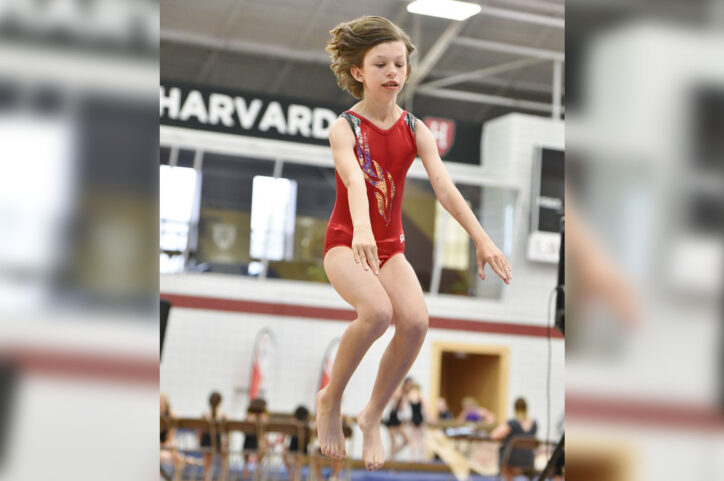
For example, one of the first things Lindsey’s care team arranged was switching her to a special baby formula because she had hypercalcemia, a high concentration of calcium in the blood. “It all goes together,” Sue says of caring for Williams syndrome. “Once they diagnosed her, Lindsey could see the specialists she needs to see and figure out everything.”
The center also collaborates with Lindsey’s local cardiologist, who determined she has supravalvular aortic stenosis. Lindsey’s aorta is narrow just above the aortic valve, affecting blood flow but not enough to prevent her from being active.
More recently, the center worked with Dr. Jocelyn Silvester, co-director of Boston Children’s Celiac Disease Program, to plan an endoscopy Lindsey needed to pinpoint the cause of reflux. Dr. Silvester diagnosed celiac disease and now Lindsey is on a gluten-free diet. “She has done great,” Sue says.
Lindsey can’t wait for Boston Children’s visits
Every three years, Lindsey visits the center’s Williams Syndrome Clinic to be evaluated by experts from audiology, behavioral psychology, cardiology, cardiovascular genetics, physical and occupational therapy, and speech and language pathology. “I enjoy it,” Lindsey says. “Talking with the doctors is the best part, and the speech part is also fun.”
The Williams Syndrome Clinic team has also worked with Lindsey’s teachers to ensure she’s on the right track at school. They’ve been there for all of her big steps: elementary, middle, and high school and now her transition school. Sue says the team has also helped her family understand everything they need to know about Williams syndrome.
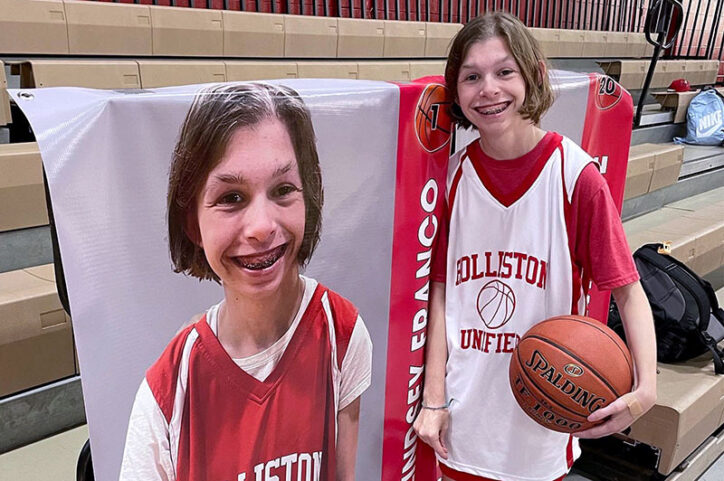
Throughout all of Lindsey’s care, Dr. Roberts has been the family’s go-to resource. “I love Dr. Roberts,” Lindsey says. “She and everybody there help me not feel nervous for my appointments. They make me want to come to Boston Children’s.”
Always on the go, Lindsey meets every challenge
Lindsey enjoys attending and living at the transition school. It’s about 90 minutes away from her family’s home in the Boston suburbs, but she stays in close contact with her parents and brother, James. Chatting with her mom one morning, Lindsey said she had something important to share; Sue thought something happened at school. No, Lindsey wanted to talk about the New England Patriots and their longtime coach Bill Belichick parting ways.
It shouldn’t have been a surprise. Lindsey is big on sports. She has won more than 30 medals participating in Special Olympics gymnastics. She also played Special Olympics basketball for many seasons and was on a unified hoops team at her high school. And she made local news when, at 13, she was drafted by Framingham State University’s softball team as part of a nonprofit initiative that pairs children with various health conditions and college sports teams. She was at every practice and game, joining huddles and post-game handshakes and hanging out with players at meals.
Lindsey plays basketball at her new school and also finds time for chorus, theater, and piano. She also hangs out with James when she can. Some days can be harder than others, Lindsey says, so that’s why she appreciates the support of her family, friends, and caregivers.
“She amazes us every day,” Sue says. “She rises to pretty much every challenge she faces, and she works hard. She keeps a positive attitude, and she makes people smile. She’s an impressive gal.”
Learn more about the Center for Cardiovascular Genetics or schedule an appointment.
Related Posts :
-

Chloe navigates Marfan syndrome with a positive attitude — and a responsive care team
Chloe Burian has always defied expectations. Despite surgeries and other treatments for several conditions that stem from the genetic disorder&...
-

With support for genetic condition trisomy 18, Brooklyn ‘tells her own story’
Erin and Tim Haggan quickly realized they would always be seeking answers after learning the child they were expecting had&...
-

In the genetics of congenital heart disease, noncoding DNA fills in some blanks
Researchers have been chipping away at the genetic causes of congenital heart disease (CHD) for a couple of decades. About 45 ...
-

Using genetics to glimpse newborns' future with congenital heart disease
Aside from infections, congenital heart disease (CHD) is the leading cause of infant mortality. Informed by babies she sees in ...


